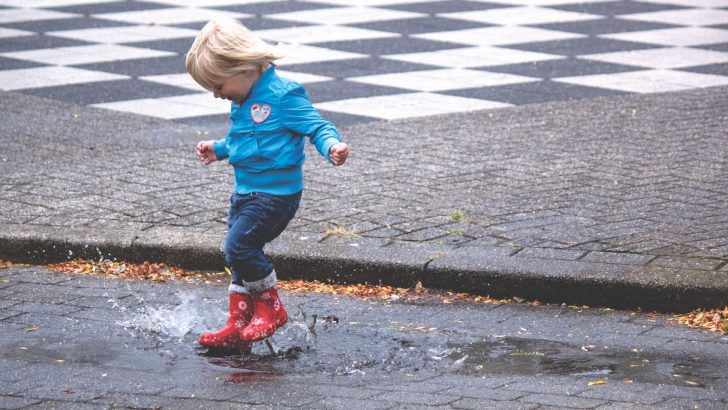The Irish have a genius for making the best of a bad situation. This remarkable ability to live in hope, and to have the craic even when things go awry, is perhaps learned at an early age during our capricious Irish summers.
The Irish fans arrived at the Euros celebrating as joyfully as if they had just won the competition, before having played a single game. It doesn’t much matter if the team don’t make it out of the group stage, as we’ve already had just as much fun as if we won the whole thing. The fact that Irish people, with a straight face, arrange barbecues, shows how deep the Irish capacity is for hope in the face of overwhelming odds.
Yet even as the ‘barbecue’ party huddles in the kitchen, microwaving beans, while watching smoke rise from the rain spattered half cooked sausages in the garden, a great time is had regardless. We make our own weather.
People here in England often remark about our kids’ willingness to enjoy walks in the rain or to stay outdoors building dens, oblivious to the cold. They’ve been toughened by growing up in the teeth of West Cork winter gales, and so the relatively clement climes of the Isle of Wight seem balmy to them, even on what passes for a bad day here.
As well as having learned fortitude, I hope they retain the deeper lessons the Irish weather imparts. It serves as a constant reminder that there are forces beyond our control and that we are not really the masters of our destiny. This reminds us that some people are unlucky through no fault of their own and so it teaches us to think charitably towards the less fortunate.
Our ever-changing weather teaches us humility, and the limits of human power and knowledge. It can inform our faith: as the clouds scud in from the infinite Atlantic to paint shadow and light across Ireland’s otherworldly landscapes, we sense that there is more to life than mud, stone and flesh. Perhaps then the Irish weather has combined with 1,600 years of Christian teaching to imbue the Irish people the virtues of faith, hope and charity.
Yet, despite the weather’s best efforts, Ireland is seeing its faith inexorably washed away. Here in England, we can glimpse Ireland’s near future: it was recently revealed that non-believers are now the majority in England and Wales with people of no religion at 48.5% of the population in 2014, outnumbering for the first time the 43.8% who are Christian – mostly Anglicans and Catholics.
The Poet Matthew Arnold’s lines from On Dover Beach seem apposite, even prophetic: “The Sea of Faith, Was once, too, at the full, and round Earth’s shore … But now I only hear, Its melancholy, long, withdrawing roar.”
You might think then that Ireland is a better place to bring up children in a culture of faith. Yet many find England a more amenable environment for people of faith than Ireland.
In Ireland, Christians generally, but Catholics in particular, are treated with real hostility by the dominant culture in media and politics. In England, despite the fact that Christians are a minority, faith is generally treated with respect and interest. Instead of angrily railing against schools with a religious ethos, as happens in Ireland, parents of no religion often actively seek out Christian schools, as the benefits of a Christian ethos are widely appreciated.
As Ireland’s culture changes, Christians will have to make their own weather, in that Irish spirit of reckless hope. In so doing, they may become an appreciated minority, as light and shade that dapples the landscape. Welcome then the summer storms that teach afresh faith, hope and charity.


 Rory Fitzgerald
Rory Fitzgerald